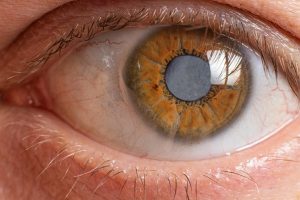 Cataracts sound scary. Any condition that can impair vision can instill fear of no longer being able to function independently or observe the sights you’ve always enjoyed.
Cataracts sound scary. Any condition that can impair vision can instill fear of no longer being able to function independently or observe the sights you’ve always enjoyed.
For most, the development of cataracts can start around age 40. The condition is marked by eye lenses becoming cloudy, but they can easily go unnoticed. By the time a person turns 80, they may have developed cataracts or had surgery.
Advertisement
Thankfully, surgery is rather quick and safe. But it is not always required, and you may be able to delay the need for an operation.
Most cases of cataracts progress very slowly and can be safely observed. Early symptoms generally involve poor night vision, particularly in the rain while driving.
But that isn’t necessarily going to send you to the express lane for surgery. There are ways to navigate around some of the early stages of cataract development that allow you to continue with your day-to-day life.
Some steps that may help early-stage cataracts, or minor declines in vision:
- Seeing your eye doctor for a new eyeglass or contact lens prescription
- Putting brighter lightbulbs in the lamps around your home, especially the ones you use to read or use for other close-sighed activities/purposes
- Find ways to reduce glare, like positioning lamps directly behind you and pointed directly on what you need lit (the book you are reading, for example)
- Use a magnifying glass
- Use contrasting colors around your home to help you see better and distinguish items/furniture
It’s possible these measures may safely delay the need for cataract surgery for a long time, potentially negating the need for surgery.
It may also depend on lifestyle, too. If you’re someone who does detailed work, like an architect or dentist, earlier surgery may be wise!
